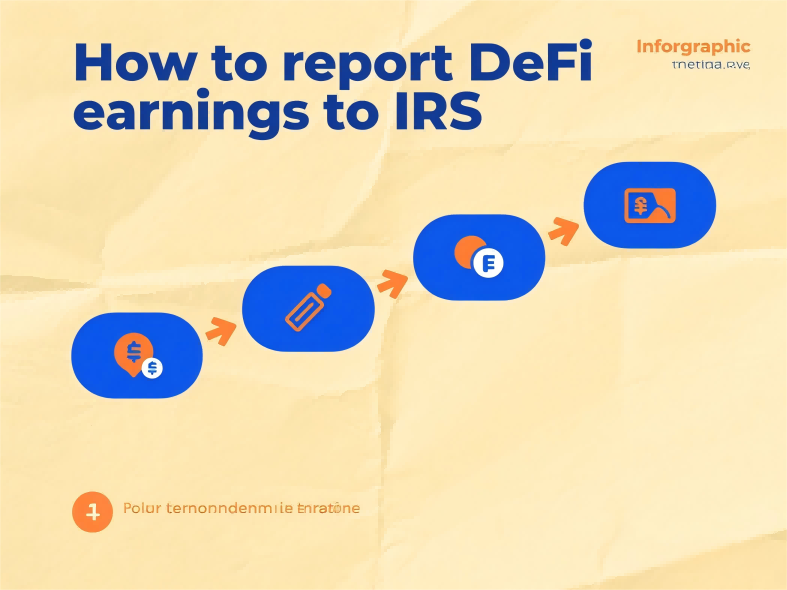Decentralized Finance (DeFi) has exploded in popularity, offering crypto users everything from yield farming to staking and liquidity pools—all without traditional intermediaries. But with great freedom comes a not-so-great reality: the IRS wants its cut. Whether you’re casually earning interest from stablecoins or aggressively farming altcoins across chains, those gains are still taxable. And the IRS is getting smarter about tracking them down.
If you’ve made money in DeFi in 2024 or 2025, you need to know how to report those earnings the right way. It doesn’t have to be overwhelming—but ignoring it could cost you more than you think.

The IRS doesn’t care if your crypto came from a slick smart contract or a traditional bank—it wants transparency. Here’s how different DeFi activities are treated:
With DeFi, you often interact with multiple wallets and dozens of tokens across chains like Ethereum, Arbitrum, or Solana. Here’s what helps:
Pro Tip: Use platforms that generate Form 8949 or Schedule D reports—you'll need those at tax time.
When filing your taxes, here’s how DeFi earnings typically show up:
Even if you didn’t cash out to fiat, your crypto-to-crypto swaps are still reportable. The IRS has made it clear: “I didn’t know” won’t fly in an audit.
If you’ve been using bridges, wrapped tokens, or high-volume swaps, the IRS may consider your activity substantial. Here are some things to avoid:
DeFi isn’t a tax-free playground anymore. Whether you’re passively staking or knee-deep in perpetuals, it’s critical to treat your crypto finances with the same attention as your fiat income. The good news? Reporting your DeFi earnings doesn’t have to be hard—it just takes the right tools and a bit of discipline.
“When in DeFi, do as the IRS expects.”
Stay compliant, use the tech at your disposal, and enjoy the freedom of decentralized finance without the stress of a surprise audit.
Spot trading is straightforward: you buy an asset like Bitcoin, Tesla stock, or gold, and you profit if the price goes up
Read MoreTrading has always carried an air of possibility. The idea of turning a well-timed decision into a life-changing profit a
Read MoreStart your CFD trading
Your All in One Trading APP PFD